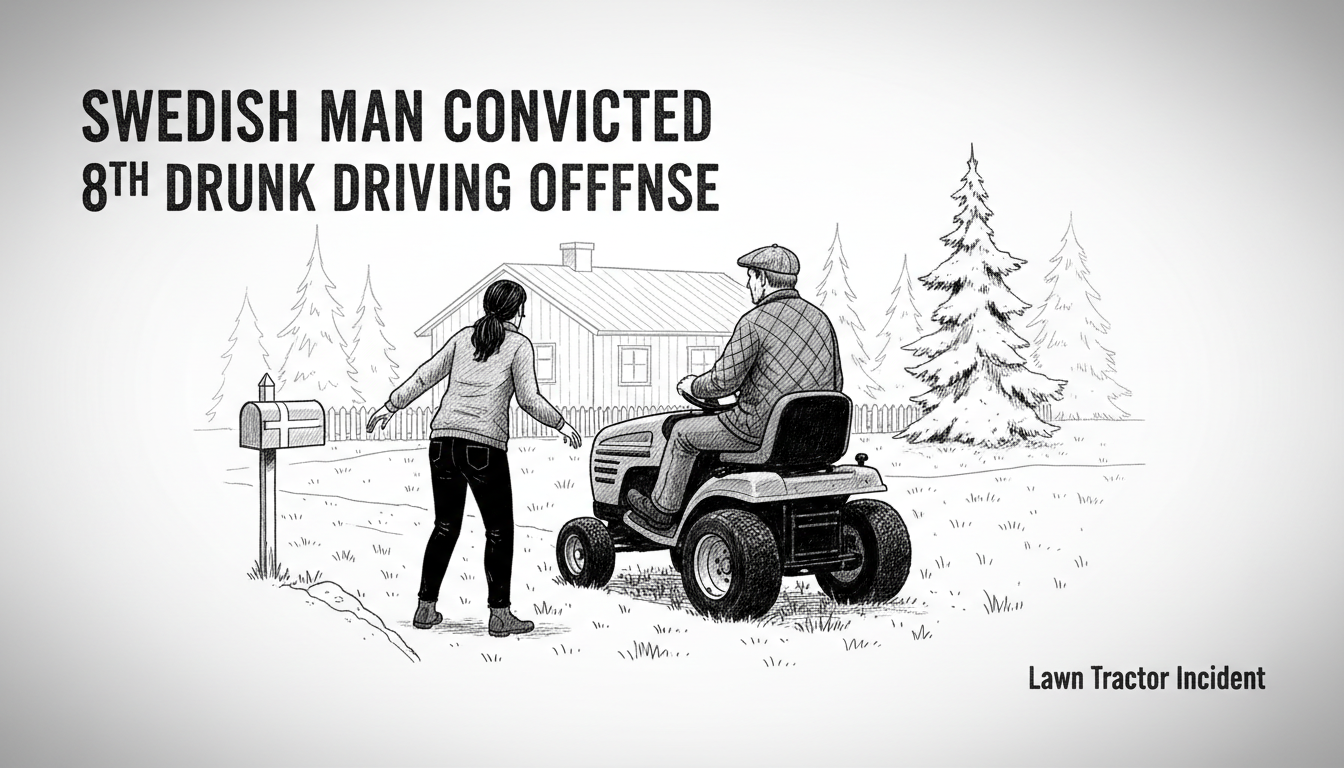A 45-year-old man from Piteå in northern Sweden has received his eighth drunk driving conviction since 2018. The latest incident involved operating a riding lawn mower while heavily intoxicated. Police recorded his blood alcohol level at 1.85 promille, more than three times Sweden's legal limit for driving.
The incident occurred when the man stopped his vehicle in a woman's driveway. He reportedly expressed wanting to hug and shake hands with the resident. The woman declined his advances and contacted authorities.
The defendant denied the charges throughout the legal process. The court nevertheless found him guilty of both drunk driving and molestation. His sentence includes 100 day-fines of 50 kronor each, totaling 5,000 Swedish kronor (approximately $475). He must also pay 2,600 kronor to the state for testing costs and an additional 1,000 kronor to the crime victim fund.
This case highlights Sweden's strict approach to drunk driving offenses. The country maintains a low legal blood alcohol limit of 0.2 promille for drivers. Repeat offenders face progressively harsher penalties under Swedish law. The court system treats driving any motor vehicle while intoxicated seriously, regardless of whether it's a car, tractor, or other machinery.
Northern Sweden has seen increased enforcement of drunk driving laws in recent years. Local police have focused on rural areas where alternative transportation options remain limited. The region's long distances between communities create particular challenges for preventing drunk driving.
International readers should understand that Swedish drunk driving laws apply to all motor vehicles operating on public roads and private properties accessible to the public. The legal system makes no distinction between different types of motorized transportation when prosecuting intoxication cases.
The conviction represents another step in Sweden's ongoing battle against repeat drunk driving offenders. Courts have shown willingness to impose increasingly severe consequences for those who continue to drive after multiple convictions. This approach reflects public concern about road safety and alcohol-related accidents.
What consequences might follow if this individual receives another drunk driving conviction? Swedish law permits imprisonment for habitual offenders who demonstrate continued disregard for traffic safety laws. The court system typically reserves custodial sentences for the most persistent repeat offenders.
Local residents have expressed mixed reactions to the case. Some question the effectiveness of financial penalties for individuals with multiple convictions. Others emphasize the importance of rehabilitation programs alongside legal consequences. The debate continues about how best to address persistent drunk driving behavior in rural communities.

